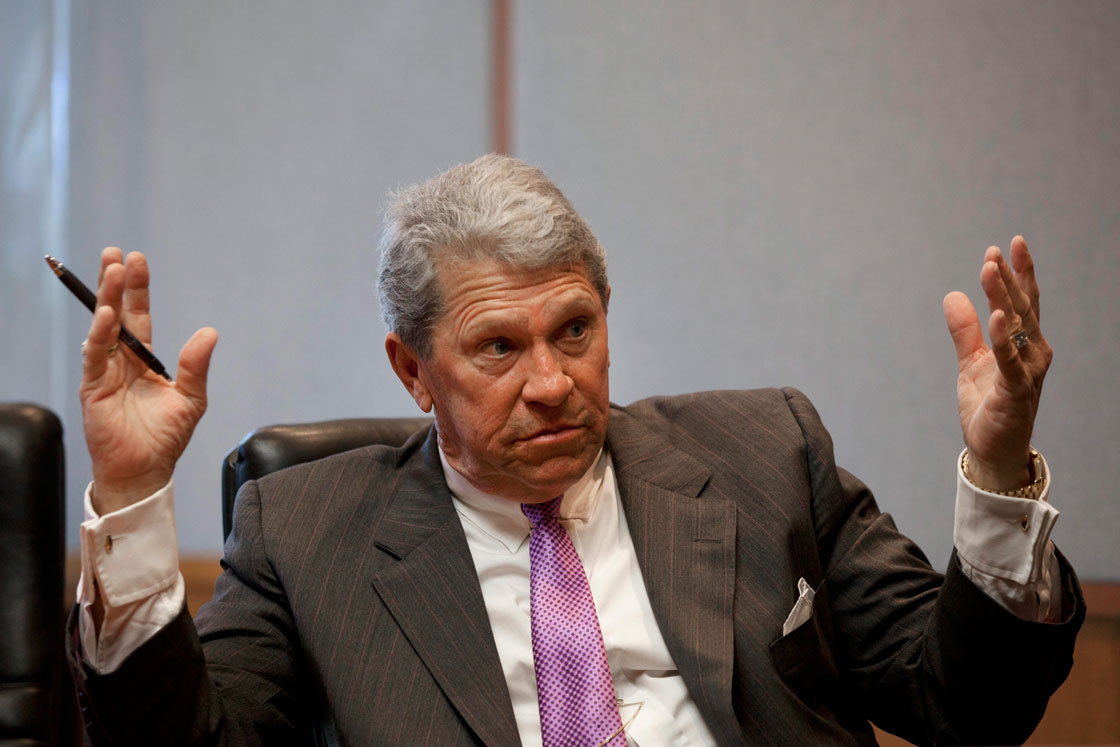Hunter Harrison, the plain-spoken CEO of Canadian Pacific Railway, insists he will be merely a “hired hand” who obeys orders after he takes on an advisory role and hands over the company reins to president and chief operating officer Keith Creel next year.

In a widely anticipated move, Canadian Pacific (TSX:CP) announced Wednesday that Creel will succeed Harrison as CEO as of July 1, 2017.
Harrison, 71, has agreed to stay with the Calgary-based company under a three-year, non-compete consulting contract following his retirement.
“The board said, ‘Look, we’ve got the opportunity to have two pretty good railroaders during a transition period and that’s not the worst thing in the world,'” said Harrison on a conference call to discuss Canadian Pacific’s second-quarter financial results.
“I don’t know how much I will be called on. I think it’s to be determined. I’m a hired hand.”
Creel, 48, has served as interim CEO for several periods when Harrison was out because of health issues in recent years.
Both led Canadian Pacific’s unsuccessful effort over the past year to acquire Norfolk Southern. Canadian Pacific abandoned its roughly US$30 billion bid for the U.S. railroad after encountering resistance from the company, politicians and some customers.

Get weekly money news
Last year, Harrison received compensation of just under $20 million, including a base salary of $2.8 million, according to a regulatory filing. Creel, who like Harrison is also a former executive at Montreal-based Canadian National Railway (TSX:CNR), had compensation of $7.5 million with a base salary of $1.16 million.
The change comes as the 135-year-old company undergoes a period of transition, laying off staff after contending with declining shipments.
Under Harrison, who joined Canadian Pacific in 2012 after retiring as CEO of Canadian National three years earlier, the company has reduced its workforce by more than 6,000 people in a bid to improve efficiency.
On Wednesday, it said it had 12,033 employees as of June 30, down 700 from the start of the year and off about 2,100 from 12 months earlier. In January, it set a goal of cutting 1,000 staff this year, mostly through attrition.
Creel said the company might start adding staff later this year and next if a predicted record Canadian grain crop materializes to boost revenue.
Canadian Pacific also reported Wednesday lower second-quarter revenue and earnings. Its profit fell 16 per cent to $328 million from $390 million in the same period last year, and on a per-share basis, net earnings were $2.15, down from $2.36. Revenue declined 12 per cent to $1.45 billion from $1.65 billion.
Chief financial officer Mark Erceg said the wildfire in Fort McMurray, Alta., in May cost the company about $20 million in lost shipments and added about $9 million in additional fuel costs as prices spiked in Alberta following the disaster.
In a separate announcement late Tuesday, Canadian Pacific said one of its directors has resigned, days after he lost an appeal of gross negligence penalties for not reporting $18.85 million of taxable income from dividends.
The railway said Anthony Melman, who also served as the chairman of its finance committee, had stepped down to assess the impact of a Tax Court of Canada decision earlier this month that found he had been “wilfully blind” to his accountants’ omission of the income in his 2007 tax return.
In a brief email Wednesday, Melman’s lawyer Keith Trussler said his client disagrees with the court and intends to appeal the decision.
In its ruling, the court said Melman has pursued a civil claim against his accountants for compensation.
Melman joined the CP board in 2012 and has also been a member of its audit committee. He is a former managing director of Onex Corp. and a former senior vice-president of CIBC, according to documents filed with regulators. He is listed as the president and CEO of Acasta Capital, a Toronto merchant bank.
Follow @HealingSlowly on Twitter.






Comments
Want to discuss? Please read our Commenting Policy first.